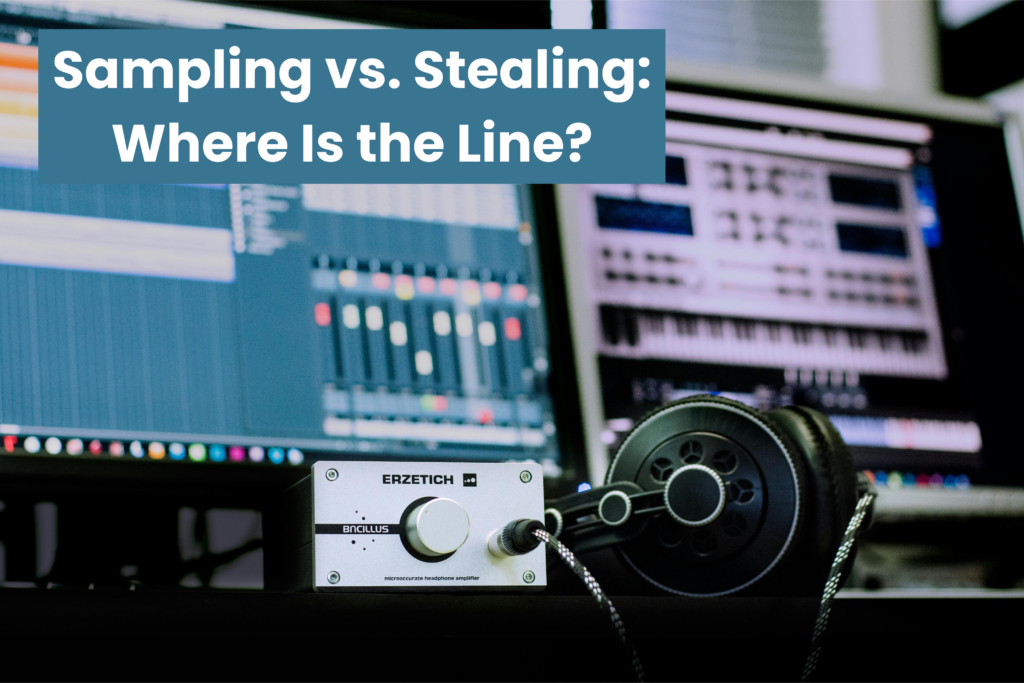
We’ve all heard a song before and thought it sounded familiar. Whether it’s the beat, rhythm, or lyrics, we can’t help but feel like we’ve heard it somewhere else before. A major talking point in the music industry is Sampling vs. Stealing in music. While sampling can honor past influences, it often sparks legal and ethical debates over Sampling vs. Stealing in music, focusing on originality, ownership, and copyright laws. Today we’ll be talking about where to draw the line between the two.
What is Sampling?
Sampling lets artists blend styles, reference other eras, and creatively repurpose existing sounds into something new. It involves taking a portion (or sample) of a sound recording and reusing it in another recording. This can include elements like rhythm, melody, speech, or sound effects. Essentially, it’s incorporating a section of existing audio into a new composition.
Artists sample drums, vocals, or natural sounds to create fresh beats, evoke nostalgia, or build new atmospheres. However, sampling without permission can raise copyright concerns and potentially lead to legal trouble for artists.
How Does Sampling Turn to Stealing?
Sampling turns into stealing when someone uses copyrighted music without permission and fails to transform it or meet the standards of fair use.It’s essentially copyright infringement.
You need to have two types of licenses for a sample. The first one is for the use of the master sound recording and the performance (usually via a record label). The second one grants a license for the actual composition, which the publisher and/or songwriter controls.
Transforming a sample in a significant way can qualify as fair use and protect you from copyright infringement. For example, using a short song snippet in a loop differs legally and creatively from covering the entire original track.
Top Music Plagiarism Cases
- Under Pressure vs. Ice Ice Baby
- David Bowie and Queen teamed up for the 1981 smash hit “Under Pressure“. Nine years later, the bass line in that song appeared as a sample in rapper Vanilla Ice’s song, “Ice Ice Baby“. The rapper ultimately settled for an undisclosed sum after Bowie and Queen sued.
- Blurred Lines vs. Got to Give It Up
- In 2013, singer-songwriter Robin Thicke wrote a song, “Blurred Lines,” featuring singer Pharrell Williams and rapper T.I. It sounded a lot like “Got to Give It Up,” a 1977 song by R&B/soul great Marvin Gaye. Gaye’s family sued and a judge ordered them to pay Gaye’s estate $5 million in 2018.
- I Won’t Back Down vs. Stay With Me
- Sam Smith shot to fame with his song “Stay with Me,” but Tom Petty wasn’t very impressed. He and Jeff Lynne, who both wrote the song “I Won’t Back Down,” claimed that the two tracks shared too close a similarity. Remaining civil, the issue was never brought to trial. Petty and Lynne were given a 12.5% songwriting credit for “Stay with Me.”
Great blog. I remember the whole vanilla ice thing.
Wow, I knew Under Pressure and Ice Ice Baby sounded similar but I didn’t know it caused a whole lawsuit!